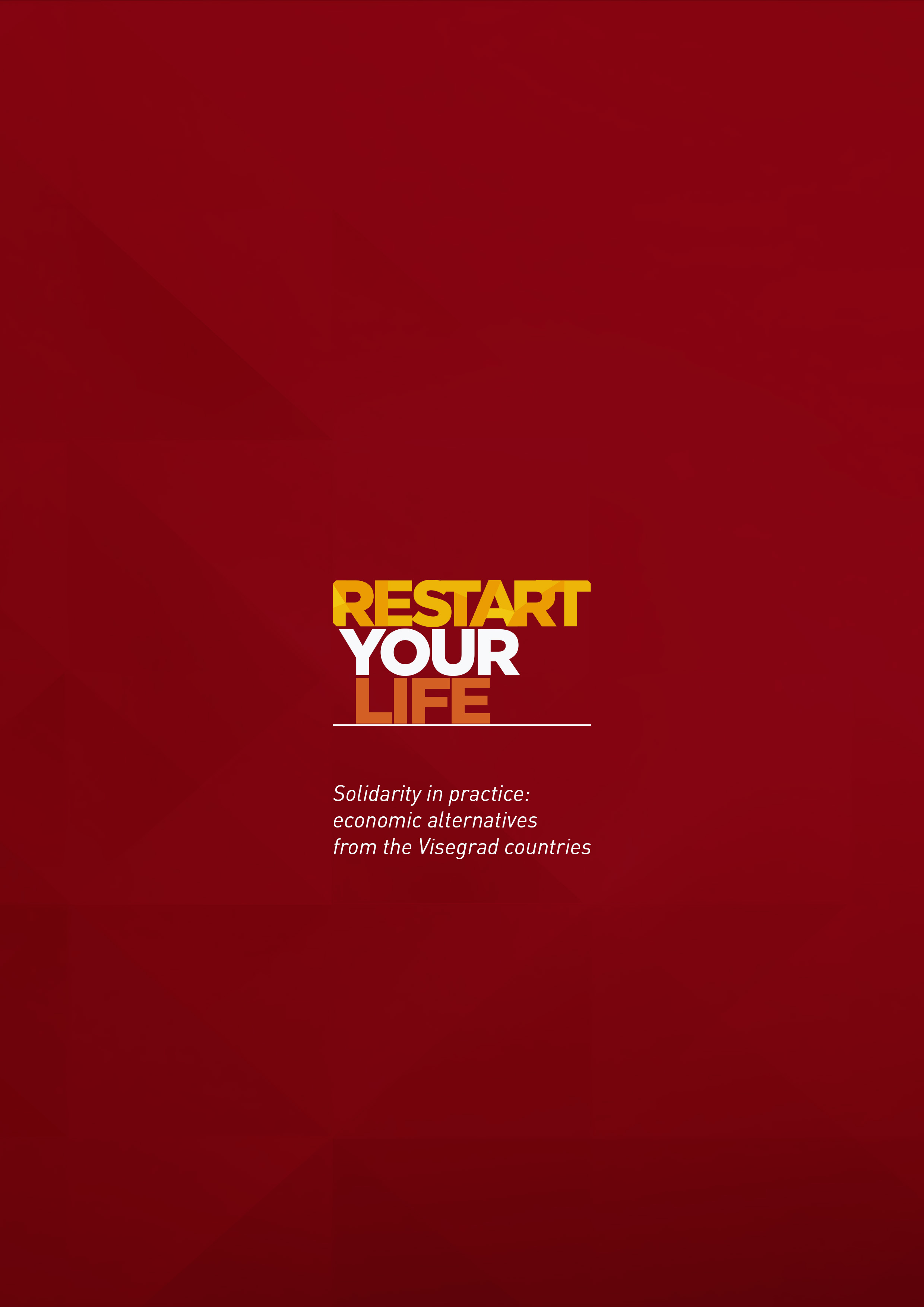Publication - restart.utopia.sk
WHY WE NEED A RESTART?
The economic situation in V4 countries stagnates, and the economic model based on direct foreign investment has reached its limits a long time ago. Often even if new jobs are created, there are no workers available and employers are hiring people from other countries. At the same time, some people are long-term unemployed or deemed to be "unemployable". Wages still do not match those in Western Europe. Voices claiming that the process of "catching up with the West" has ended, and those saying that our countries will never reach western social development are on the rise. Moreover, there is a growing body of evidence that prevalent economic models are not sustainable in the times of the current climate crisis – they are harmful to the environment and contribute to uneven social development by creating areas of deepening economic and social deprivation. Some of the regions are threatened with depopulation. In 2020, developments in all V4 countries were also negatively affected by the Covid-19 pandemics. Unemployment rose temporarily and many people found themselves in dire existential problems as a result of poorly organised or deliberately missing support, and the overall anti-social approach of neoliberal governments to the crisis. The consequences of pandemic measures will become apparent later, but it is likely that – as in other crises – people will have to respond with their own bottom-up action. At the same time, to revive the economy, it is necessary to promote those voices that already for some time have been drawing attention to the harmfulness and unsustainability of outdated development models.
It is, hence, urgent to promote new approaches to economic and social development in the V4 countries. Recently, across the V4 region, various actors (individuals, organisations and public administration bodies) have started fostering new local approaches to the social and solidarity economy, such as locally organised production and consumption, municipal enterprises, and the like, some of them taking into account also the environmental dimension of their activities and operation.
The social and solidarity economy1provides a viable alternative to the prevalent economic models and practices. A vast number of initiatives are already creating change in our communities, and in the way in which we relate to each other, to our environment, and other forms of life. They represent “real Utopias” – a really existing and operating economy based on democratic and solidarity values. There are many success stories of local actors tackling economic problems in innovative ways via establishing socially conscious and environmentally sustainable enterprises. They often operate in difficult conditions of under-developed regions. Most of them are examples of grass-root initiatives tapping into people’s potential to creatively combat poverty and environmental degradation. But there are also examples of support for the social and solidarity economy “from above”, mostly on the local level. Municipalities or local governments can be very important and effective actors of needed social and economic changes. They can mobilise local resources and use the structures of public administration to foster solidarity and democracy. Many paths lead to change.
However, these efforts often occur in isolation from each other and there is a growing demand for a more systematic exchange of new ideas, experiences and know-how. The networking of various actors must aim at creating structures representing resistance to destructive public policies. The V4 countries have been facing similar challenges and hence have a lot to offer in dealing with similar issues. We have chosen several cases from each country which we regard as inspirational examples of good practice. They are quite diverse, as they show a wide variety of organisations and initiatives and a broad range of their activities. Each country team took a slightly different approach to present their cases, but they are all unified by a common thread – to highlight various ways in which we can build solidarity between people and in our communities.
Repeating the same procedures over and over again and expecting them to solve the problems they are causing does not make much sense. The crises we are facing clearly show that change is not only necessary but also unavoidable. However, it will not come from institutions and structures whose survival depends on maintaining obsolete and destructive economic activities and empty political ideologies. A society that is democratic and rejects authoritarianism and oppression in all its forms can only grow out of a practice in which the values of solidarity, cooperation, and respect for life are the basis of all relations. And the social and solidarity economy organisations and initiatives are already showing us the way to reach these “new shores”.
1 Resources including definitions and various examples of the social and solidarity economy can be found on the website http://www.socioeco.org

